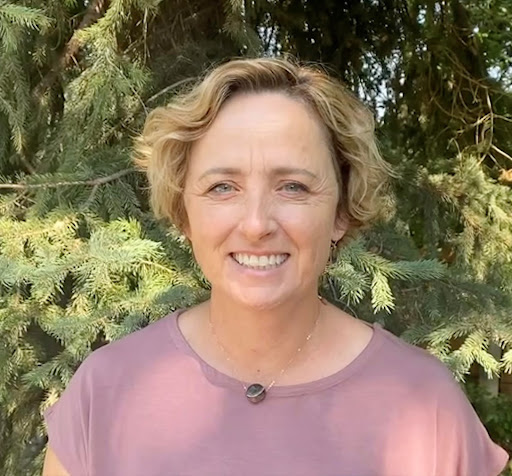Celebrating Research: Holly Symonds-Brown
5 September 2022

Holly Symonds-Brown
Holly Symonds-Brown earned her PhD in nursing from the University of Alberta in 2020, and joined the faculty as assistant professor in January 2021. She currently teaches on the issues of mental health and well-being throughout a person’s lifespan.
Before joining the U of A, Symonds-Brown taught in the nursing program at MacEwan University for several years and had a rewarding career as a nurse in community mental health settings. While she loved her work, she was also in a unique position to notice the gaps in formal systems of care. This insight led her to pursue doctoral research exploring how day programs contribute to care in the community for people living with dementia at home and their families. She hopes to help both nurses and policy-makers increase their understanding and ability to improve the quality of life for this population.
“I want to start building interesting ideas that can be used to improve care and everyday life for people living with dementia and others who are marginalized. But I don’t think the solutions are going to come from health experts alone. Equally important to me is figuring out how we use this knowledge to build civic engagement by the public to address the challenges of exclusion in order to make things different than they are now,” says Symonds-Brown.
We spoke to Symonds-Brown to learn more about her work.
How did you get into your area of research?
I have spent all of my nursing career working with or teaching about people who live on the margins of society. As a community mental health nurse, I also spent a lot of time trying to ‘coordinate’ different aspects of community and health services for people and even though I loved this work, it always seemed to be more difficult than it should be. I became curious about the assumptions underlying care-system design and their effects, as well as the ways we study this.
In my doctoral work I was mentored to use some interesting approaches to knowledge development that can open up how we think about taken-for-granted things like “care.” I studied people living with dementia at home and how day programs worked as care for them. I was struck by the degree of exclusion they experienced in public spaces and how hard it was for someone with a diagnosis of dementia to move around in the world. This mobility — or freedom to move in the world — and its effects on health and quality of life are now the focus of my research program.
What’s the most rewarding aspect of your work?
Studying community care from a mobilities lens is very much about trying to study everyday life for people as they make their way through the spaces of day-to-day living with conditions that usually aren’t going to get better. We know everyday life is where health-care interventions aim to have significant effects, yet it is also a sort of mundane space that is often overlooked in how we plan and evaluate our interventions. In my research, I get to spend time with people in their everyday life to see the creative, specific ways they make things work to move around their worlds, despite the less-than-perfect circumstances they are in. The best part of my work is that I get constant reminders that people are pretty amazing at finding a way to live their life as well as possible, despite the barriers they face.
What’s the most challenging aspect of your work?
It is work that takes time. It is not quick research, so that can be challenging.
Where do you want your research to be in five years?
I hope in five years I am at a stage of having built some useful knowledge about how mobilities are shaped in community-care systems and larger urban infrastructures. I’d also like to be starting to experiment with how we can creatively engage the public in making changes to how we think about living together.
What is something your co-workers might not know about you?
I love trees and am completely fascinated by the science of forests.
Where is your favourite place on campus?
Rutherford Library — it is the smell of old books, I guess!
The University of Alberta is the top institution in Canada for nursing and ranked ninth worldwide according to the latest QS World University Rankings by Subject. Our world-leading Faculty lead cutting-edge work that's changing the face of global health. Learn more: https://www.ualberta.ca/nursing/careers/joining-us.html.